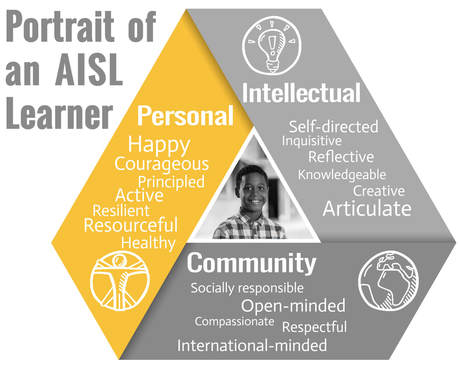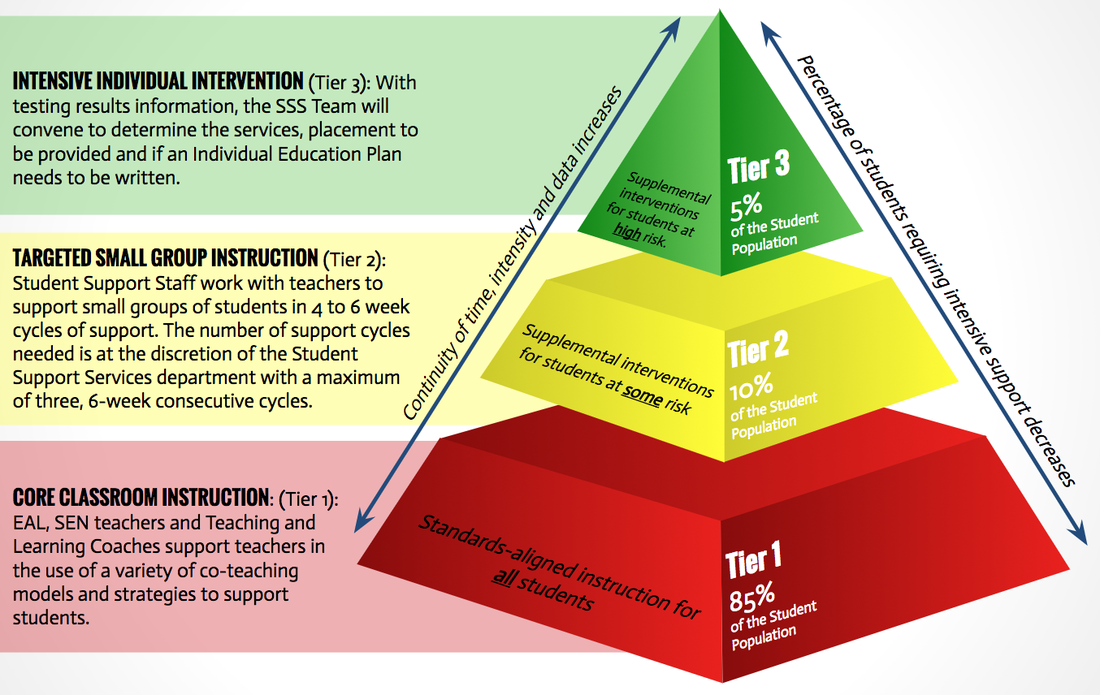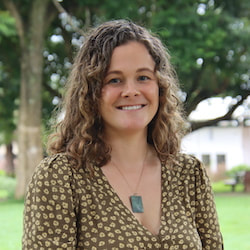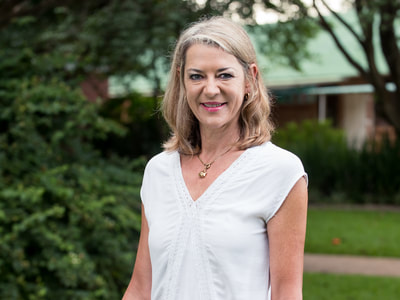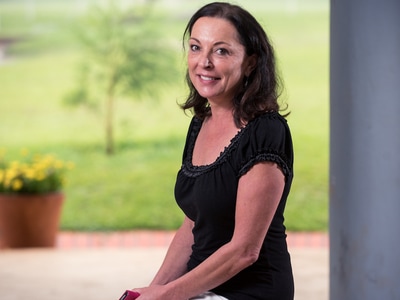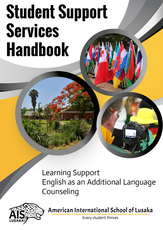|
AISL Definition of Inclusion
In line with the School’s mission and the IB philosophy, AISL defines inclusion as a dynamic process that increases access and engagement in all learners, including those who learn differently, are new to the academic language, are gifted and talented, and are in need of medical or social-emotional support. AISL Inclusion Mission Statement We identify barriers to learning and remove these barriers through advocacy, support, and research-based remediation. AISL Inclusion Vision Statement Students will realise their potential and navigate life’s gifts and challenges with compassion and courage. AISL Inclusion Core Beliefs and Values
|
In focus...
Response to Intervention
Learning Support
Counseling
Differentiation
English as an Additional Language
Response to Intervention
Learning Support
Learning specialists work in collaboration with classroom teachers in both Primary and Secondary to remediate language-processing difficulties and/or provide instructional support for students with identified learning differences. The learning specialists, alongside the classroom teachers, use internal and external data to guide in the support.
Educational assessments are administered to determine a student's current level of academic performance, especially in the areas of reading, math and written language. The assessment also explores receptive as well as expressive languages, and the underlying processes of visual and auditory integration. When necessary, the Inclusion Team refers students to external specialists for Speech and Language, Psycho-Educational, Occupational Therapy and Physical Therapy Assessments.
Individualized Education Plans (IEP) and Student Accommodation Plans (SAP) are created to ensure that students with identified learning differences gain access to their learning through research-based remediation, intentional differentiation, and targeted technology use. In addition to academic support, teachers and the Inclusion Team also address the social-emotional needs of all students.
The Inclusion Program uses the framework of the Response to Intervention (RTI) model to employ evidence-based practices to promote student success and ensure access to the curriculum across all levels of the school through academic support, language processing remediation, and speech and language services.
The Inclusion Team believes in a close partnership with the family. As such there is periodic communication between home and school.
Auxiliary services such as Occupational, Physical, or Speech and Language Therapy are provided by external specialists, contracted and paid for by the families. Should such specialists be available in Lusaka, AISL will facilitate in the referral and connection.
Educational assessments are administered to determine a student's current level of academic performance, especially in the areas of reading, math and written language. The assessment also explores receptive as well as expressive languages, and the underlying processes of visual and auditory integration. When necessary, the Inclusion Team refers students to external specialists for Speech and Language, Psycho-Educational, Occupational Therapy and Physical Therapy Assessments.
Individualized Education Plans (IEP) and Student Accommodation Plans (SAP) are created to ensure that students with identified learning differences gain access to their learning through research-based remediation, intentional differentiation, and targeted technology use. In addition to academic support, teachers and the Inclusion Team also address the social-emotional needs of all students.
The Inclusion Program uses the framework of the Response to Intervention (RTI) model to employ evidence-based practices to promote student success and ensure access to the curriculum across all levels of the school through academic support, language processing remediation, and speech and language services.
The Inclusion Team believes in a close partnership with the family. As such there is periodic communication between home and school.
Auxiliary services such as Occupational, Physical, or Speech and Language Therapy are provided by external specialists, contracted and paid for by the families. Should such specialists be available in Lusaka, AISL will facilitate in the referral and connection.
Counseling
The counseling department aims to foster healthy self-esteem and self-awareness, as well as a sense of responsibility to self and others.
|
The mission of AISL’s counseling program is to facilitate each student’s personal, social, academic and career development through the delivery of a comprehensive and developmental approach to guidance activities and personal counseling. This is a collaborative effort between the home, school and community aimed at fostering in students: personal responsibility, emotional intelligence, and flexibility in an ever-changing world as they work towards becoming confident, well-adjusted, and culturally sensitive global citizens.
|
Differentiation
When teachers differentiate their instruction, they tailor curricular content and teaching methods to match each student’s individual needs, whether the student needs learning support, is solidly keeping pace with the curriculum or is seeking to go beyond. The supportive and flexible learning environment at AISL is perfect for the implementation of differentiation. The learning specialists and literacy coaches support teachers with instructional planning and the implementation of differentiated teaching and learning through collaborative meetings in grade levels and departments.
What is Differentiated Instruction?
“Differentiation refers to a wide variety of teaching techniques and lesson adaptations that educators use to instruct a diverse group of students, with diverse learning needs, in the same course, classroom, or learning environment” (Abbott, 2014).
Goals of Differentiation
Classroom teachers’ efforts must be to challenge and support each individual student’s learning. Classroom teachers engage individuals and small groups using a variety of teaching strategies creating learning experiences that meet each child’s needs. The objective of differentiated instruction is to maximize each student's growth and individual success by meeting each student where he or she is rather than expecting students to modify themselves for the curriculum (Hall, 2002).
What is Differentiated Instruction?
“Differentiation refers to a wide variety of teaching techniques and lesson adaptations that educators use to instruct a diverse group of students, with diverse learning needs, in the same course, classroom, or learning environment” (Abbott, 2014).
Goals of Differentiation
Classroom teachers’ efforts must be to challenge and support each individual student’s learning. Classroom teachers engage individuals and small groups using a variety of teaching strategies creating learning experiences that meet each child’s needs. The objective of differentiated instruction is to maximize each student's growth and individual success by meeting each student where he or she is rather than expecting students to modify themselves for the curriculum (Hall, 2002).
English as an Additional Language
As English is the language of instruction at AIS Lusaka, developing competence in the English language is crucial to students’ success in all sections of the school. The EAL program is designed to address the needs of students from non-English speaking backgrounds who are in the process of developing interpersonal and academic English language skills. The goal of the program is to equip students with the English language skills necessary to operate independently within the general classroom at a level that reflects their age and ability.
EAL students receive support and specialised instruction in English language acquisition from qualified EAL staff on a regular basis. They also receive differentiated support within their grade level and subject area classes from their teachers, including EAL staff. This service model is consistent in both the Primary and Secondary Schools.
EAL students receive support and specialised instruction in English language acquisition from qualified EAL staff on a regular basis. They also receive differentiated support within their grade level and subject area classes from their teachers, including EAL staff. This service model is consistent in both the Primary and Secondary Schools.
|
AISL Inclusion Policy.
The Inclusion policy is in alignment with IB Philosophy, which states: "Inclusion is an ongoing process that aims to increase access and engagement in learning for all students by identifying and removing barriers." (Learning Diversity and inclusion in IB programmes) The American International School of Lusaka promotes a philosophy of inclusion by striving to:
|
If you would like more detailed information about any of the services please see the Student Support Services Department Handbook.
|
|
|

